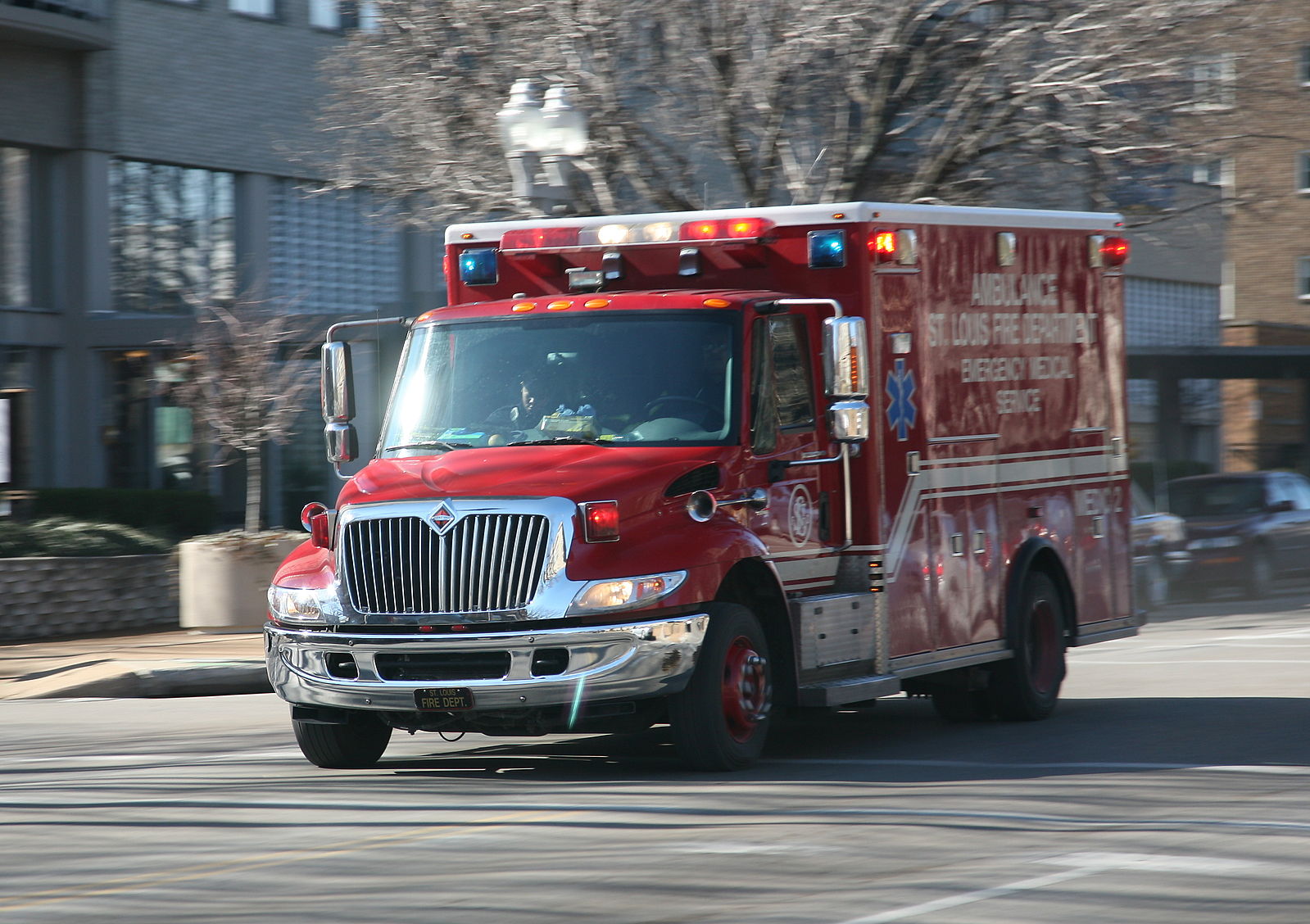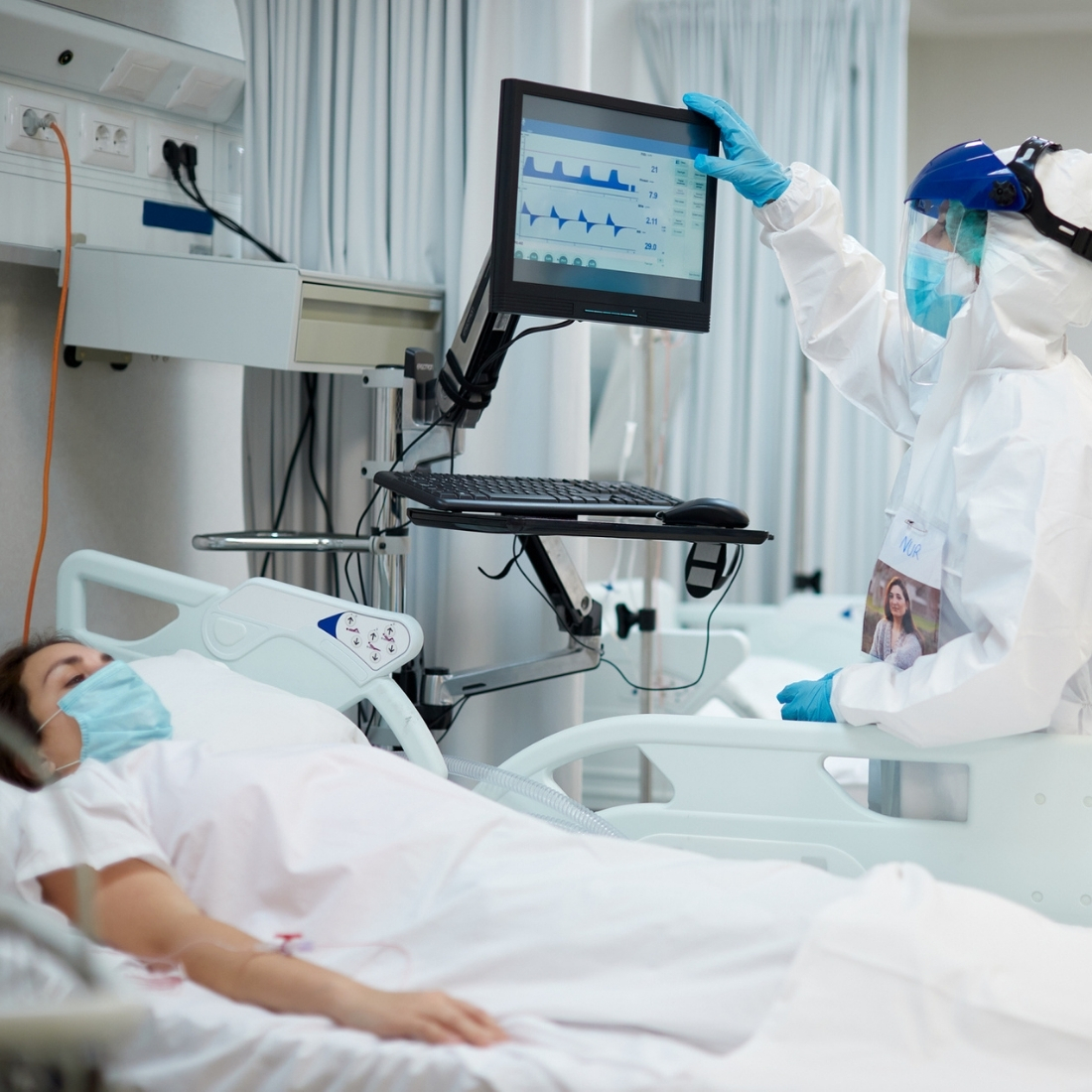
Dr. Shaiba Ansari-Ali is a rheumatologist at Northwestern Medicine Delnor Hospital in Geneva, Illinois. She's also been on the patient side of things after experiencing a rare medical episode at just 42 years old.
It all started with a cough. Not just a cough, per se, but lingering bouts of coughing that Dr. Ansari-Ali later recognized as cough-variant asthma, she told Today. She never imagined it could lead her to have a very rare stroke that is deadly for most.
What was most jarring about Dr. Ansari-Ali's experience is that though she appeared unconscious to those around her, that wasn't the case. She was fully aware of everything going on around her, but unable to move or communicate that to anyone else.

Dr. Shaiba Ansari-Ali never thought her chronic cough could lead to a more serious medical issue.
"I had a cough for about four years and it was happening nonstop for about four to six months of the year," she wrote for Today.
"I'd get a virus in August and cough my way through December, and then maybe pick up a virus in December and cough my way through spring. It was an intense cough and sometimes my rib cage would hurt after an episode."

The bouts of coughing would last for a period, then disappear for a period, which made it hard for doctors to understand the gravity of the situation. When she did have the cough, she'd cough for a few minutes at a time throughout the day, but it would subside at night.
Everything changed on the morning of July 1, 2016. Dr. Ansari-Ali was home when she started feeling different.
"I was at home and sat down at my computer. Suddenly, the room just started to spin and it was very weird," she recalled.
"Not only did it spin round and round, but up and down. It was like being on the worst roller coaster ever."

Dr. Ansari-Ali made her way from her guest bedroom to her bedroom, where her husband was. She let him know he was dizzy, and they both believed it to be a migraine, which she would sometimes get. She went to the bathroom and vomited, as she has with migraines before.

This time was different, however. This time, she lay on the floor and realized she couldn't move.
"I could feel everything and process everything, I just couldn't move anything," she shared.
"I thought, 'Wow, I'm having a stroke.' I actually knew where in the brain it was. So I was like, 'Oh, I'm having a basilar artery stroke and I have limited blood to the internal capsule,' which is the part of the brain that lets you move."

Dr. Ansari-Ali would later learn just how serious the stroke really was.
"I later learned I had a vertebral artery dissection that led to the stroke. That's just a fancy way of saying that the blood vessels that go to the brain, the two big ones in the back, the lining on the inside had kind of sheared away," she explained.
"Like if you have a pipe and the lining shears away and falls in on itself, anything that's going through that pipe is now going to be blocked. About 85% of people who have this type of stroke die before they get to the hospital."

Dr. Ansari-Ali explained that her cough was putting a lot of stress on her neck. "The vertebral artery dissection is more of a mechanical thing. It can happen with weird sudden movements — like severe whiplash during a car accident," she explained.
"In my case, if you're coughing all the time, your neck is under a lot of stress. That area just keeps getting pummeled."

While many would be terrified of the idea of experiencing all of this without anyone knowing you were conscious, Dr. Ansari-Ali actually didn't feel fear.
"The locked-in syndrome started when I was on the bathroom tile. When my husband saw me, he thought I was unconscious, but I knew exactly what was happening," she said.
"I know this is weird, but I had no fear. On the inside, I was super funny, funnier than I've ever been. I was Ryan Reynolds in Deadpool — that's the exact voice I was on the inside. I was also very objective and analytical. It was like I could live stream the stroke in a very optimistic, funny way."

"The ambulance people didn't know I was awake because they kept doing sternum rubs that really hurt — you rub really hard on the breastbone of a patient to assess consciousness," Dr. Ansari-Ali explained.
"The first doctor also didn't know, but the neurologist knew pretty quickly I was having a stroke."
Dr. Ansari-Ali wouldn't be able to move again until well after getting to the emergency room.

"The locked-in syndrome ended when I got the very strong blood thinner TPA in the emergency room," she shared.
"I felt this jolt of electricity go through me and then suddenly I could move my right side again. I was sedated and intubated. I could not feel, but I could see and process everything, but everybody else thought I was asleep or in a coma."

When she was finally able to communicate with others, it was harder than expected. "I thought I was communicating clearly, but everybody said my voice was garbled. I could feel all my extremities and knew I could move them, but I felt dead tired," she shared.
"I did a few weeks of inpatient rehab and then recovered at home for about two months. Those first three months are super critical. Whatever you're going to get back after a stroke, you can get it back the most easily within that time. So I just focused on rehab and didn't allow any visitors. I come from a big Indian family and they were almost breaking down the doors to come in and see me."
Today, Dr. Ansari-Ali is on a blood thinner for life but otherwise doing great. "In the mornings when I'm fresh, I feel 90% of how I did before. But when I get tired, my speech becomes garbled, I'll start to limp a little and I’ll choke on foods more because I can't swallow very well," she shared.
"After this experience, I always make sure I'm optimistic for my patients because when I was in rehab, the doctors were always optimistic. I tell patients to focus on what they can do. Don't go day by day but month to month. If this month is better than the month before, you're on the right track."




